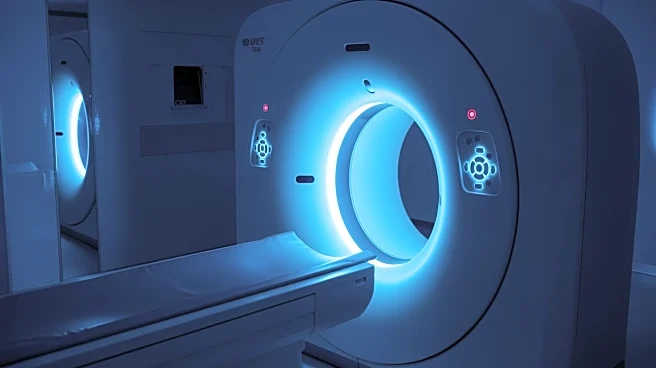Rapid Read • 8 min read
Researchers at the University of California, Irvine have discovered a combination of natural compounds that can rejuvenate aging brain cells and clear harmful proteins linked to Alzheimer's disease. The study, published in the journal GeroScience, highlights the use of nicotinamide (vitamin B3) and epigallocatechin gallate (a green tea antioxidant) to restore guanosine triphosphate (GTP) levels in neurons. This restoration enhances the brain's ability to remove toxic amyloid beta aggregates, a hallmark of Alzheimer's. The treatment also reduces oxidative stress and reactivates key cell trafficking pathways, suggesting a potential non-drug strategy for combating Alzheimer's.
AD
The findings from UC Irvine offer a promising non-pharmaceutical approach to addressing age-related cognitive decline and Alzheimer's disease. By using compounds available as dietary supplements, this research could pave the way for new preventive or therapeutic strategies against neurodegenerative diseases. The ability to restore energy levels in neurons and improve protein clearance could significantly impact the quality of life for aging populations and reduce healthcare costs associated with Alzheimer's treatment. However, further research is needed to optimize the delivery method, as oral nicotinamide has shown limited effectiveness due to inactivation in the bloodstream.
Future research will focus on finding the most effective way to administer the treatment, given the challenges with oral nicotinamide. Researchers may explore alternative delivery methods to ensure the compounds reach the brain effectively. Additionally, clinical trials will be necessary to validate the efficacy and safety of this supplement-based approach in humans. The study's authors emphasize the need for continued investigation into the role of GTP in brain function and its potential as a target for Alzheimer's therapy.
This study underscores the importance of energy metabolism in brain health and highlights GTP as a critical energy source for neuronal functions. The research suggests that age-related declines in GTP levels may impair autophagy and endocytosis, processes vital for cellular maintenance. By addressing these energy deficits, the study opens new avenues for understanding and treating neurodegenerative diseases. The ethical implications of using dietary supplements for disease prevention and treatment also warrant consideration, as accessibility and regulation of such supplements could impact public health strategies.
AD
More Stories You Might Enjoy










